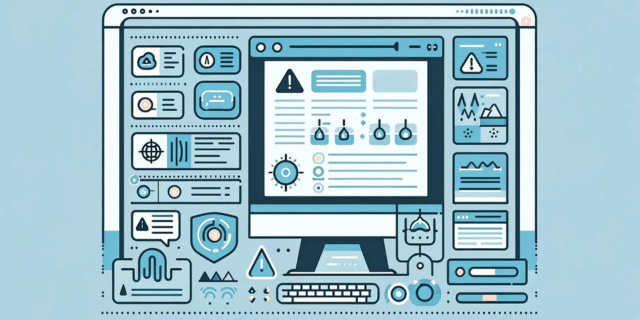The starter
With SaaS reaching maturity, many digital product companies have their own DevOps capabilities – whether in-house or contracted in.
But while most don’t need CI/CD implementations, there remains a need for on-demand DevOps engineers to troubleshoot issues out of hours.
This is where DaaS (DevOps as a service) for SaaS comes in.
If this is you, click down to All things DaaS and SaaS.
If you’re still exploring your options, or developing a product, read on.
The entrees
Why DevOps is of benefit to SaaS and digital product companies
Why is DaaS the silver bullet – and the Rosetta Stone?
All things DevOps and SaaS
Not all SaaS businesses go by that name. Many think of themselves simply as software companies, platforms, or digital product companies.
SaaS means software as a service, i.e. users access the product via a paid subscription which grants them web access, as in everything under the aaS model.
The benefits of SaaS are:
- A central code base
- Low barrier to adoption
- Unified user experience and rollouts
- Rapid scaling
And with Gartner predicting SaaS to be the leading cloud service by end user spend in 2022, it’s safe to say many are well aware of these advantages.
Why DevOps for SaaS?
First things first, what is DevOps?
Not to be confused with Agile development, DevOps is the melding of operations (Ops) and development (Dev).
There’s a philosophical aspect to this, ‘dev and ops should work together because…’. And a technology/process element ‘what is CI/CD, what is Jenkins, what is a DevOps pipeline,’ ect.
The philosophical element
Traditionally, ops and dev were siloed, and this meant that bugs and other issues could be kicked back and forth between the two for months before being resolved.
DevOps sought to solve this problem by marrying the two and creating the discipline of DevOps, a more collaborative, less siloed, and multidisciplinary approach to deploying software.
The tech/processes element
The main goal of DevOps is to deliver CI/CD, which stands for continuous integration and continuous deployment. This is a largely automated process of software delivery wherein code is tested, fixed and deployed with minimal human input.
Why DevOps is of benefit to SaaS and digital product companies
Many readers will be SaaS/product companies who use DevOps and know why. And there is a case to be made that this question is a little like asking why it’s better to use round wheels rather than square ones.
In short, it’s an industry standard for a reason.
But for fledgling SaaS companies, it pays to make the case.
6 unique benefits of DevOps for SaaS companies
- The culture of SaaS usage is adopt and drop, since it’s easy to sign up to a competitor if the current provider isn’t working out. This means, more so than other types of providers, SaaS companies need to respond to user feedback fast. DevOps allows this through empowering fast, bug-free deployments.
- This element of increased competition also means new features are required not only in response to issues but to keep adding functionality ahead of the competition. This is also empowered by DevOps.
- Again, partially as a function of this increased competition, downtime can kill a SaaS product fast, hence the stability guaranteed by DevOps is more advantageous.
- SaaS and DevOps both tend toward smaller teams and less management, so in this sense, DevOps enables or compliments the organisational goals of many SaaS companies.
- Some SaaS products are more like digital agencies, serving a dedicated client base with care, the kinds of fast resolutions empowered by DevOps keep the end user happy and subscription revenue ticking over.
- SaaS, more so than traditional software delivery, is part of the forward facing cohort in tech. So is DevOps. It’s simply a culture thing.
SaaS market maturity
If our own inboxes are to be believed – and why would we doubt them? – most SaaS companies are already well on the way to CI/CD.
And if you’re particularly sceptical, take it from strongdm when they say that 83% of IT decision makers report implementing DevOps practices in 2021.
So, while it’s a great idea to implement DevOps, most extant SaaS and product companies already have.
There are other discussions to be had around the depth of adoption, optimised tooling and so on, but for today’s purposes, we want to talk about DaaS.
All things DaaS and SaaS
The persisting need for mature software companies is for DevOps engineers on-demand, any time.
Some have in-house engineers; some have a DevOps company they’ve contracted in or work with on a part-time basis. In either case, it’s the out-of-hours issues that cause problems.
A DaaS provider supplies DevOps engineers within these windows to monitor, break/fix, oversee out-of-hours deployments, triage – and whatever else is required within that skillset.
Why is DaaS the silver bullet – and the Rosetta Stone?
For one, DevOps as a service is stepping up just as SaaS reaches maturity. And for many companies with established DevOps processes, DaaS is the competitive innovation that sets them ahead of competitors.
However, DaaS can also be a Rosetta Stone: when the pace of change outstrips our vocabularies, matching a service to your needs isn’t as straightforward as you might think.
But what we’ve found is that DaaS is the best conversation starter around supporting a modern distributed application – whether it calls itself a SaaS product or not.
So, what you might mean by DaaS is…
DaaS as application monitoring
Within the industry, there is some overlap between application monitoring and DaaS, and it may be a company looking for one is really looking for the other – or even both.
DaaS engineers will often monitor logs set up as part of an application monitoring effort, and many of the issues identified will be related to DevOps.
DaaS as end user support
Likewise, DaaS engineers may end up being the first line of defence when end users run into problems.
They might not be responding directly to tickets, but, depending on the issue and the time it arises, many fixes may entail tagging in your DaaS engineers.
In short, there are many complex needs in today’s world, and at present, many are filed under DaaS.
How we can help
We’ve carried out complex support projects for SaaS companies in healthcare, legaltech and digital HR.
This work spans DaaS, application monitoring, end user support, full-stack support and managed cloud, and we pride ourselves on raising the bar with our bespoke support platform Mission Control.
Why not read about our work with:
- On-demand fitness and nutrition app The Body Coach
- LegalTech SaaS company StructureFlow
- Digital HR and payroll SaaS solution Paylocity
- Cyber security SaaS platform Absolute Software
Or to talk about you, just get in touch.




